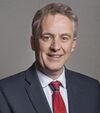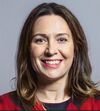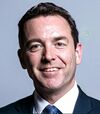Cabinet of Erealand
The Cabinet of Erealand is the most senior decision-making body of His Majesty's Government. It is chaired by the Prime Minister and includes Secretaries of State and other senior ministers.
The Ministerial Code states that the activities of the Cabinet and its committees are mainly: major policy issues, issues of major public interest and issues where there are unresolved disputes between departments.
History
Until at least the 16th century, individual officers of state had separate property, powers and responsibilities granted by royal decree, whilst the Crown and the Privy Council constituted the only co-ordinating authorities.
Phrases such as "cabinet counsel", meaning advice given in private, such as the monarch, in a cabinet that is a small room, occur from the late 16th century, and given the non-standardized spelling during that period, it is often difficult to distinguish whether "council" or "counsel" was meant. The first monarch to introduce something resembling a cabinet was Charles I, who, from his accession to power in 1625, began a formal "cabinet council" as his Privy Council, or "private council", with the first recorded use of the word "cabinet" to designate such a body being in 1644, but is again hostile and associated with dubious foreign practices.
During the later centuries, there were ministries in Erealand led by the chief minister, who was a personage leading the Erealandian government on behalf of the monarch. Despite primary accountability to the monarch, these ministries, having a group of ministers running the country, served as a predecessor of the modern perspective of cabinet.
Since the reign of King George I, the Cabinet has been the principal executive group of the government. Both he and George II made use of the system, as both were not native English speakers, unfamiliar with Erealandian politics, and thus relied heavily on their selected groups of advisers. The term "minister" thus came into being since the royal officers "ministered" to the sovereign. The name and institution have been adopted by most Erealandic-speaking countries, resulting in the Council of Ministers or similar bodies often being informally referred to as cabinets.
The modern Cabinet system was set up by Prime Minister David Lloyd Keating during his premiership, 1916–1923, with a Cabinet Office and Secretariat, committee structures, unpublished minutes, and a clearer relationship with departmental Cabinet ministers. The formal procedures, practice and proceedings of the Cabinet still remain largely unpublished.
This development was driven by the exigencies of the First World War, when faster and better coordinated government decisions were seen as a crucial part of the war effort. Decisions on mass conscription, global coordination with other governments across international theatres, and armament production were all linked to an overall war strategy that could be developed and overseen by an internal "War Cabinet". After the war, the country went through successive crises: the 1926 Erealandian general strike, the League of Sovereign Nations crisis of 1927, the Great Depression of 1929-32, among other situations. All of them demanded for a highly organised and centralised government, with the Cabinet at its centre.
Importance
Cabinet ministers, like all ministers, are appointed and may be dismissed by the monarch without notice or reason at the advice of the Prime Minister, whose discretion generally overviews the allocation and transfer of responsibilities between ministers and departments.
The Cabinet has always been led by the Prime Minister, whose originally unpaid office as such was traditionally described as merely "first among equals", but today the prime minister is the preeminent head of government, with the effective power to appoint and dismiss Cabinet ministers and to control the Cabinet's agenda. The extent to which the Government is collegial varies with political conditions and individual personalities.
The Cabinet is the ultimate decision-making body of the executive within the Westhaughton system of government in traditional constitutional theory. Its political and decision-making authority has been gradually reduced over the last several decades, with some claiming its role has been usurped by a "prime ministerial" government. In the modern political era, the prime minister releases information concerning the ministerial ranking in the form of a list detailing the seniority of all Cabinet ministers. Its centralisation in the early 20th century enhanced the power of the Prime Minister, who moved from being the primus inter pares of the ??? Cabinets of 1906 onwards, to the dominating figures of David Lloyd Keating, ??? and ???.
The Institute for Government claims that the reduced number of full Cabinet meetings signifies "that the role of Cabinet as a formal decision-making body has been in decline since the war. This view has been contradicted by the constitutional experts, who claim that "the Cabinet has, in fact, been strengthened by the decline in full meetings, as it allows more matters to be transferred to cabinet committees. Thus, business is done more efficiently."
Most prime ministers have had a so-called "kitchen cabinet" consisting of their own trusted advisers who may be Cabinet members but are often non-cabinet trusted personal advisers on their own staff. In recent governments, it has been reported that many or even all major decisions have been made before cabinet meetings, a suggestion has been made by former ministers.
The combined effect of the Prime Minister's ability to control Cabinet by circumventing effective discussion in Cabinet and the executive's ability to dominate parliamentary proceedings places the Prime Minister in a position of great power that has been likened to an elective dictatorship. The relative inability of Parliament to hold the Government of the day to account is often cited by the Erealandian media as a justification for the vigour with which they question and challenge the Government. This is often controversial as some people believe that the media corporations have a key influence upon certain components of the Erealandian elections.
The classic view of the Cabinet government describes the prime minister as the "first among equals". The view was questioned by James Rossman in The Myths of Cabinet Government (1972), who was a former member of the Labour government. He thought that the position of the Prime Minister had acquired more power so that prime ministerial government was a more apt description. Rossman stated that the increase in the power of the Prime Minister resulted from the growth of the prime minister's private office and Cabinet secretariat, the power of centralised political parties and the development of a unified civil service.
Graham Hallenbeck (a government whip during ???'s first government) makes the case in From First Lord to President (2003) that the office of the Prime Minister has presidential powers. However, the power that a Prime Minister has over his or her cabinet colleagues is directly proportional to the amount of support that they have with their political parties and this is often related to whether the party considers them to be an electoral asset or liability. Also when a party is divided into factions a Prime Minister may be forced to include other powerful party members in the Cabinet for party political cohesion. Their personal power is also curtailed if their party is in a power-sharing arrangement, or a formal coalition with another party.
Meetings of the Cabinet
Most cabinet meetings take place in the Cabinet Room of 10 Hanaghan Street; however, they have been known to take place in other places.
Despite the custom of meeting on a Thursday, numerous prime ministers have held meetings on Tuesdays. Their length varies according to the style of the Prime Minister and political conditions, but modern meetings can be as short as 30 minutes. Ministers are bound by the constitutional convention of collective ministerial responsibility.
Composition
As head of the Cabinet, the Prime Minister decides on the composition and membership of the Cabinet. The total number of Cabinet ministers entitled to a salary is limited to 21, including the Lord Chancellor, who is paid separately.
Certain officials may also be appointed to participate in the Cabinet, such as the parliamentary leaders, the attorney general, civil servants in the Cabinet Secretariat and special advisers. The latter two do not participate in the discussions.
The Cabinet is a committee of the Privy Council. It consists almost exclusively of members from the House of Commons, with ministers traditionally recruited only from the House of Commons or the House of Lords, though this convention has been broken in the past. If no minister is appointed from either house, they may be granted a customary peerage.
Current Cabinet
As of August 2022, the makeup of the Cabinet (in order of ministerial ranking) is:
See also
- Erealandian Government frontbench
- Official Opposition Shadow Cabinet














